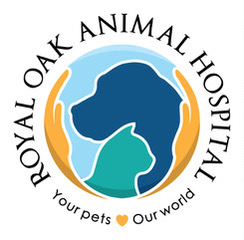Library
-
A telemedicine visit is typically conducted over telephone, text messaging, chat, email, or videoconference. This may allow a veterinarian to diagnose and treat your pet’s medical condition remotely, without the need for an in-person visit. Your appointment will be conducted by a licensed veterinarian.
-
Preparing your pet for a blood test helps to ensure that the results are as accurate and reliable as possible. Preparation for routine and special blood tests is slightly different. Your veterinarian will give you specific instructions before your appointment. It is important that you follow these instructions exactly to ensure accurate test results.
-
Winter cold weather poses several risks for our pets. This article outlines some of the key risks and how to avoid them, to keep your pet safe year-round.
-
Probiotics are given by mouth and are used over the counter to treat gastrointestinal upset. Give as directed by your veterinarian. Side effects are rare but may include gas or mild discomfort. Do not use in pets that are very sick and immunocompromised, or in pets that are allergic to it. If a negative reaction occurs, please call your veterinary office.
-
Propranolol (brand names Inderal®, Detensol®, Hemangeol®, Innopran®) is a beta-blocker used off label (extra label) to treat abnormal heart rhythms (arrhythmias) in cats, dogs, ferrets, and horses. It has also been used short-term to treat hypertension caused by thyrotoxicosis or pheochromocytoma. It is given by mouth or injection.
-
Pyrantel pamoate is given by mouth and is used on and off label to treat intestinal parasites in many species. Give as directed. Side effects are uncommon but may include stomach upset, such as vomiting or diarrhea. Do not use in pets that are allergic to it. If a negative reaction occurs, call your veterinarian.
-
Rabbits can make wonderful pets for those willing to understand their unique characteristics and needs. They are very intelligent and always adorable, but require special handling and more supervision than some other pet species. As it is with all pets, though, rabbits require a healthy diet, lots of activity, social interaction, and routine veterinary care to live happy and healthy lives.
-
Ranitidine is given by mouth or injection and is used off-label to treat ulcers and erosions in the stomach and upper small intestine, reflux, or gastrointestinal motility issues. Give as directed. Side effects are uncommon but may include stomach upset. Do not use in pets with a history of allergies to this class of drugs. If a negative reaction occurs, call your veterinarian.
-
Reproductive disease in ferrets is rare today, as most pet ferrets are spayed or neutered at a young age. One disease that is still occasionally seen in pet ferrets occurs in females that are not spayed. This is called hyperestrogenemia and is a result of persistently high blood levels of estrogen in unspayed females that are not bred or fails to ovulate.
-
Respiratory disease in ferrets is common. Several infectious/contagious conditions like distemper and influenza can be life threatening for ferrets. Like dogs and cats, ferrets can develop heartworm disease, even indoors. Lymphoma, a cancerous condition of lymph organs can cause disease in the chest cavity.


